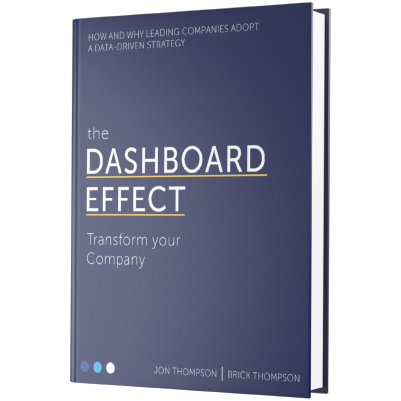Andy Thompson is founder and CEO of Notch Partners, a boutique executive talent consultancy retained by leading private equity firms such as Advent, Charlesbank, Warburg Pincus, and AEA. Notch Partners creates competitive advantage for PE firms by “cultivating high-impact relationships that result in superior returns for investors and transformative career opportunities for executives.” They source industry-specific CEO-level talent as well as executive-led investment theses. Founded in 2002, the firm maintains a network of 40,000 executives and works with later stage investors purchasing control positions in mature companies. We are grateful for the niche knowledge that Andy shared during our recent Expert Insight Series interview.
Top 4 Takeaways:
- To increase their opportunities to work with PE firms, executives should be proactive and prepare industry-specific investment briefs. PE firms are interested in “executive-driven ideas”.
- PE firms interested in hiring or collaborating with veteran executives should maintain a deep bench of talent (internally or through partners) so that when the opportunity presents itself, they can access the right executive at the right time.
- Economic recessions present a good opportunity for PE firms to partner with experienced CEOs to unlock value by identifying temporary dips in acquisition multiples.
- Don’t underestimate the impact of dashboard reporting. Having good data, ideally in a somewhat standardized form, provides PE firms and portfolio companies alike with the data visibility they need to monitor performance and drive timely decision-making.
Watch the full interview, listen to the podcast episode, or read the highlights below:
Access the transcript here: full transcript.
How Executives Should Approach PE Firms
Notch Partners is frequently contacted by current or recently retired CEOs interested in working with PE firms. These executives are often in the later stage of their career looking to apply their talent and experience to help turn PE deals into big successes, but are sometimes not sure of the best way to get engaged.
If an executive has experience in an industry and ideas for value creation aligned with a PE firm’s investment profiles, Notch Partners advises them to develop an original, industry-specific executive-led deal thesis for PE firms’ consideration. As part of their service offerings, Notch Partners will support executives in creating single-focused investment briefs, and this mutually beneficial approach has proven to be a valuable strategy for building relationships between PE firms and executives.
How PE Firms Should Approach Executive Advisors
Having worked with PE firms for 20 years, Andy advises investors to be straightforward in two ways when engaging with potential executives:
- Firms should not be hesitant to approach an executive with experience running a much larger business than the one they’re considering buying. Executives often grow their experience as their businesses grow. A CEO who successfully led a $500M business, is often the person who grew it from a $100M business originally.
- Firms should not be afraid to engage an executive in an area they may not already have deep expertise in. After some research, they should initiate a conversation with the executive, saying, “Here’s what we think is going on in your industry. Here’s why we like that for this opportunity.” A long-time industry veteran may think the conclusions or investment thesis are not quite on the money, but they generally welcome the opportunity for discourse and a mutually beneficial relationship can develop through that dialogue.
“Don’t be afraid to stick out your neck.” – Andy Thompson
Invest During Economic Headwinds
With the current inflationary headwinds, Andy observes that good investors find the high-quality deals where there has been a downtick in price, while the rest of the field may be stalling due to uncertainty.
Taking a cue from Warren Buffet’s quote, “[B]e fearful when others are greedy, and be greedy when others are fearful,” Andy suggests investors consider the full investment lifecycle before adopting contractionary fiscal measures. If investors are not at the end of a fund cycle, they are usually willing to be patient for two or three months as the downturn develops to find opportunity to get more with their dry powder.
Andy reminds our audience that private equity funds are sticky, and downturns have not historically impacted deal volume for sustained periods of time. When markets rebound, organizations that have invested during recessions outperform those who have not (Harvard Business Review, 2020).
Additionally, particularly during times of economic recession, data visibility helps stabilize operational spending and powers good decisions. Per Bain & Co., “To support better decision making, a key part of scenario planning involves creating high-resolution visibility on spending and the other key recession response areas” (2022).
Growth Through Data Visibility
While PE firms will proudly tell you that they do not interfere with management teams, they still require regular visibility into portfolio company performance. Firms may own or oversee up to 50 portfolio companies and need to stay abreast of operations. Dashboard reporting provides an effective tool for oversight and keeps the board informed without micromanaging portfolio company executives. Furthermore, a single source of truth prevents overseers from “spinning negative stories” that may not match reality, and drives good decision-making. The benefits of data visibility are hard to exaggerate. (Listen to Blue Margin founders, Jon and Brick Thompson, share their experience as PE-backed executives without data visibility on this podcast episode.)
Like leading PE firms, Notch Partners uses data visibility to drive good decision-making. After implementing dashboard reporting about five years ago, they transitioned from slow-growth to medium-growth. Additionally, data visibility powered more effective management meetings. Andy estimates that good BI will likely deliver 5x the amount of value you might initially expect. He reflects that companies often grossly underestimate the value of digital transformation. “Having the right data was integral to us having meaningful and efficient management meetings and making efficient, good decisions about the business.” – Andy Thompson
Contact Notch Partners
If you’d like to contact Andy or Notch Partners, you can do so through their website notchpartners.com/contact. If you are a PE firm interested in how to build an internal or external executive arsenal, Andy would be happy to talk with you.
If you’d like to explore how Blue Margin’s team can help you use data visibility to drive growth and data-driven decision making, contact us below.

